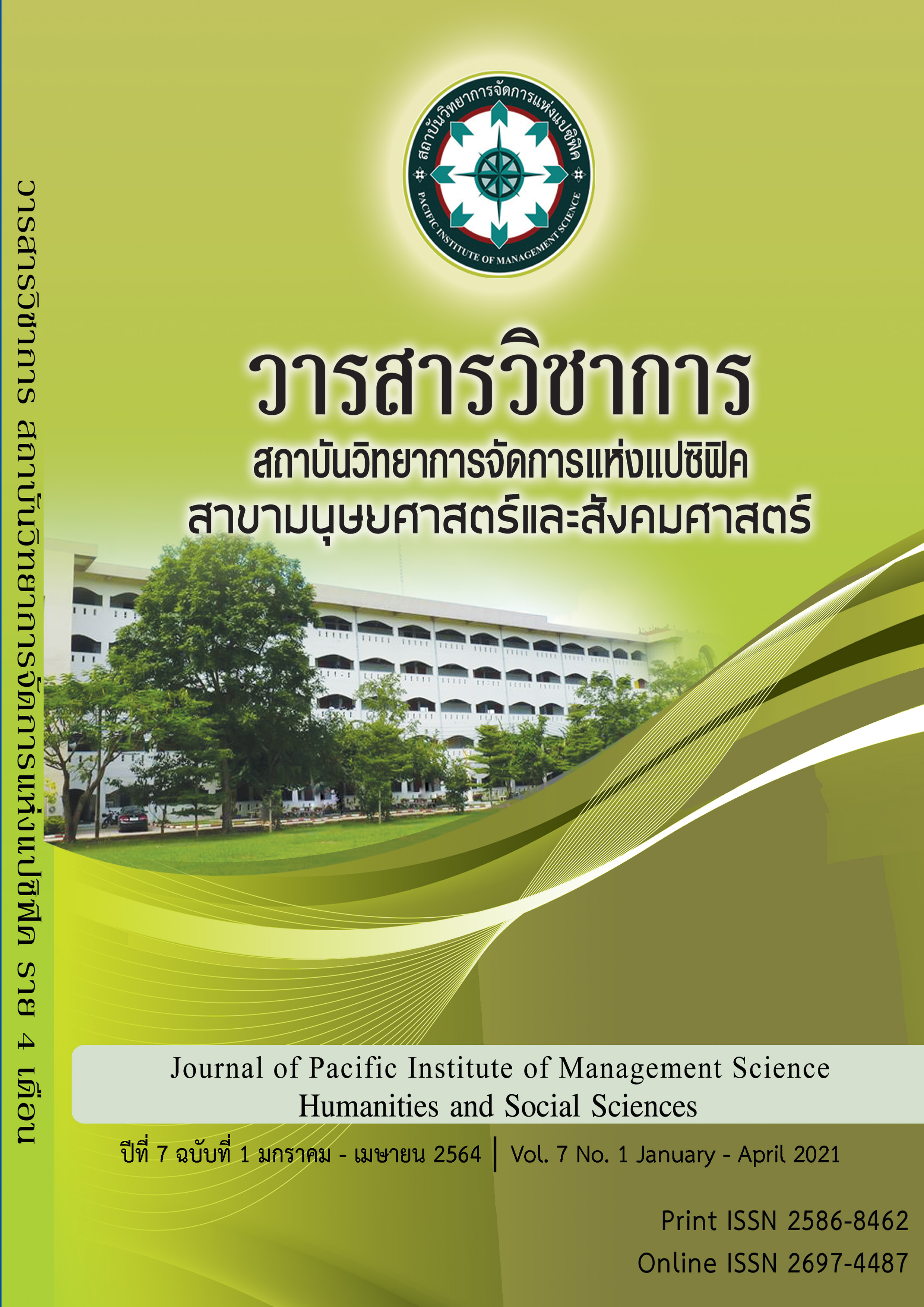The Development of Creative Drama Learning Activities for Stimulating Executive Functions Skill in Inhibitory Control Behavior of Preschool Children
Keywords:
Creative drama learning activities, Executive functions skill, Inhibitory controlAbstract
The objectives of this research were to create a series of creative drama activities to promote thinking skills that influenced abstinence behavior in early childhood and to compare the thinking skills that influenced abstinence behavior among 4-to-6-year-old primary school students at Uthit Suksa Kindergarten, with problems in thinking of three abstinence behavior indicators: behavior inhibition, emotional control, and management planning. The sample consisted of a total of 19 primary school students. The results of the research were as follows: (1) the creation of a creative drama activity set to promote thinking skills influencing abstinence behavior in early childhood, with 12 activity plans. The first to the fourth activity plans were intended for developing behavior inhibition. The fifth to the eighth activity plans were used to develop emotional control. The ninth to the twelfth activity plans were for developing management planning. In addition, based on the Index of Item Objective Congruence (IOC) from experts, it can be concluded that the experts had the opinion that the form of creative drama activity was appropriate and consistent with the activity at the highest level; and (2) the results of the experiment to compare the indicators of thinking skills that influenced the abstinence behavior before and after organizing the creative drama activities included three indicators of creative drama activities. The average score before the event was lower than after the event. By using the evaluation of the indicators of development of emotional control, the results were at the highest level, followed by a management planning development indicator and a behavioral inhibition development indicator, respectively.
References
ดุษฎี อุปการ, และ อรปรียา ญาณะชัย. (2561). การเสริมสร้างพัฒนาการการเรียนรู้ของเด็กปฐมวัยควรเลือกใช้หลักการใด: “การเรียนรู้โดยใช้สมองเป็นฐาน” หรือ “การคิดเชิงบริหาร”. วารสารวิชาการ Veridian E-Journal สาขามนุษยศาสตร์ สังคมศาสตร์ และศิลปะ, 11(1): 209-215.
ปราณี เมืองน้อย, พัฏ โรจน์มหามงคล, อิสราภา ชื่นสุวรรณ, สุธาทิพย์ เอมเปรมศิลป์, และ วินัดดา ปิยะ. (2560). คู่มือสำหรับพ่อแม่เพื่อเผยแพร่ความรู้ด้านการดูแลและพัฒนาเด็ก ตอนวัยอนุบาล 3-6 ปี. กรุงเทพฯ: ราชวิทยาลัยกุมารแพทย์แห่งประเทศไทย สมาคมกุมารแพทย์แห่งประเทศไทย.
พนมาน เทียนมนัส. (2539). ความเชื่อมั่นในตนเองของเด็กปฐมวัยที่ได้รับการจัดประสบการณ์การเล่านิทานประกอบการแสดงละครสร้างสรรค์และประกอบการวาดภาพ. ปริญญานิพนธ์การศึกษามหาบัณฑิต มหาวิทยาลัยศรีนครินทรวิโรฒ.
สุภาภรณ์ บัณฑิตย์. (2556). เอกสารชุดวิชา ECED211: จิตวิทยาพัฒนาการสำหรับเด็กปฐมวัย. พิษณุโลก: สาขาวิชาการศึกษาปฐมวัย คณะครุศาสตร์ มหาวิทยาลัยราชภัฏพิบูลสงคราม.
สุภาวดี หาญเมธี. (2558). EF ภูมิคุ้มกันชีวิตและป้องกันยาเสพติดคู่มือสำหรับครูอนุบาล. กรุงเทพฯ: มติชน.
Gmitrova, V., & Juraj, G. (2003). The Impact of Teacher-Directed and Child-Directed Pretend Play on Cognitive Competence in Kindergarten Children. Early Childhood Education Journal, 30(4): 241-246.
Kohls, G., Peltzer, J., Herpertz-Dahlmann, B., & Konrad, K. (2009). Differential effects of social and non-social reward on response inhibition in children and adolescents. Dev Sci, 12(4): 614-625.
Downloads
Published
Issue
Section
License
บทความที่ได้รับการตีพิมพ์เป็นลิขสิทธิ์ของ สถาบันวิทยาการจัดการแห่งแปซิฟิค
ข้อความที่ปรากฏในบทความแต่ละเรื่องในวารสารวิชาการเล่มนี้เป็นความคิดเห็นส่วนตัวของผู้เขียนแต่ละท่านไม่เกี่ยวข้องกับสถาบันวิทยาการจัดการแห่งแปซิฟิค และคณาจารย์ท่านอื่นๆในสถาบันฯ แต่อย่างใด ความรับผิดชอบองค์ประกอบทั้งหมดของบทความแต่ละเรื่องเป็นของผู้เขียนแต่ละท่าน หากมีความผิดพลาดใดๆ ผู้เขียนแต่ละท่านจะรับผิดชอบบทความของตนเองแต่ผู้เดียว







